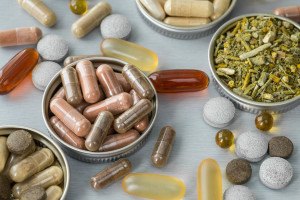 It is fairly well known that vitamin c is good for the immune system, calcium is good for your bones and vitamin A in carrots is good for your eyes. But what are the most important vitamins and minerals for your teeth and gums? We’ll have a look at some of the key substances, and what foods contain the highest amounts.
It is fairly well known that vitamin c is good for the immune system, calcium is good for your bones and vitamin A in carrots is good for your eyes. But what are the most important vitamins and minerals for your teeth and gums? We’ll have a look at some of the key substances, and what foods contain the highest amounts.
How Do Nutrients and Minerals Affect Good Oral Health?
It is important for your body’s tissues to have access to nutrients and minerals so that they can resist infection. Too little or too much of a particular nutrient can be harmful, especially when it comes to your mouth. Any deficiency or excess might contribute to oral infections and diseases.
The Best Teeth and Gum Nutrients and Minerals
These are good for your entire body, but are especially important for your oral health:
Vitamin B3 (Niacin) – A vitamin B3 deficiency can cause your mouth the develop canker sores (mouth sores) and bad breath. Fish and chicken are foods that contain vitamin B3.
Vitamin B2 (Riboflavin) and Vitamin B12 – Mouth sores may also form if you are deficient in vitamins B2 and B12. For a good source of B12, eat red meat, fish, chicken, pork, liver and dairy products such as cheese, yogurt and milk. Vegans have a difficult time getting sufficient B12, so they often need to use a dietary supplement. It is also possible to find certain products that contain added vitamin B12, such as almond, rice and soy milks and specific breakfast cereals. Vitamin 2 can be found in spinach, almonds, pasta and bagels.
Vitamin C – If you are deficient in vitamin C, you may experience bleeding gums and loose teeth. Some of the best sources of vitamin C include oranges, raw red peppers and sweet potatoes.
Vitamin D – It is essential for your oral health to consume sufficient vitamin D, since your body uses it to help with the absorption of calcium. Burning mouth syndrome can occur with too little vitamin D in your diet. Symptoms include the sensation of a burning mouth, dry mouth and a bitter or metallic taste in your mouth. Foods that contain vitamin D include fish, milk and egg yolks.
Calcium – The primary component of your jaws and teeth is calcium. If you have a calcium deficiency, you’re at risk of tooth decay and gum disease. Calcium-rich foods include milk, cheese and yogurt, in addition to oysters and beans.
Iron – Is your tongue inflamed? Are there sores in your mouth? It may be due to a deficiency of iron. To boost your iron levels, there are several kinds of foods you can eat, such as bran cereals, spices and certain nuts, as well as red meat and liver.
Foods to Beware of for Optimal Oral Health
There are certain foods that can be bad for your teeth. Either limit them, or follow them up with careful, comprehensive dental health care. Mouth bacteria feeds on any leftover carbohydrate-heavy food debris in your mouth (i.e. bread, crackers, pasta and chips). It produces acid, which then causes tooth decay. The sugar in sticky foods like caramel, raisins, jelly beans and granola bars stays on the teeth and it becomes more difficult for saliva to wash it away. Other foods that contain sugar and are bad for your teeth are cake, cookies, desserts, candy and gum. Why are fizzy soft drinks bad? In addition to having a lot of sugar, regular and diet sodas have phosphorous and carbonation, which eats away at your tooth enamel.







Leave a Reply